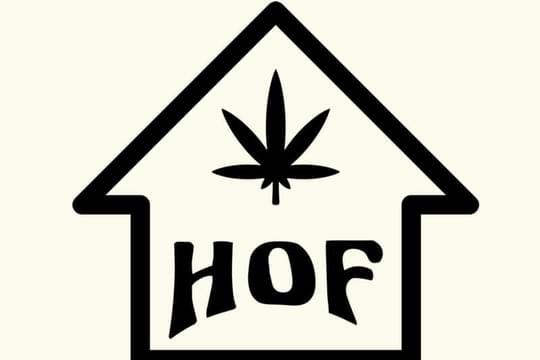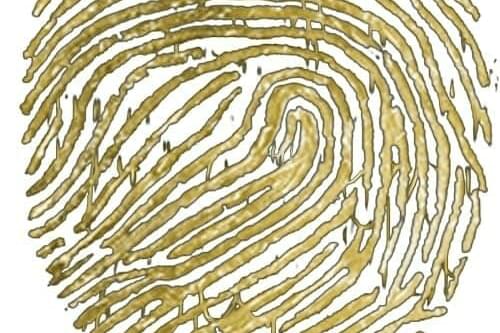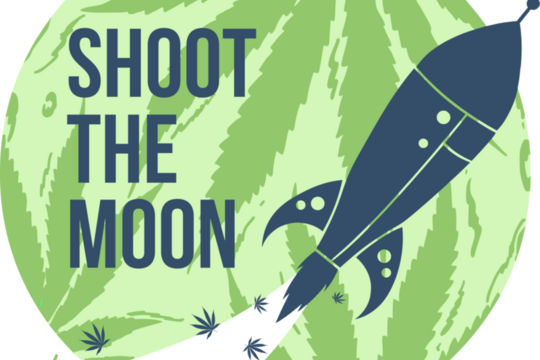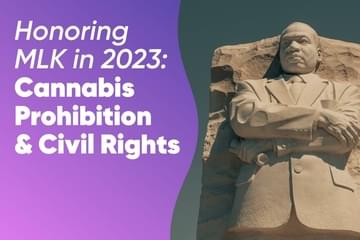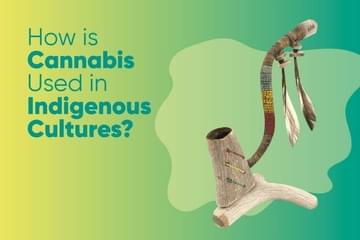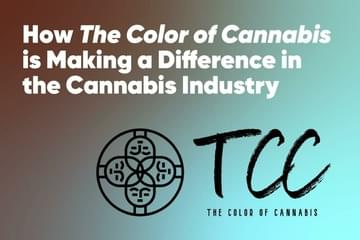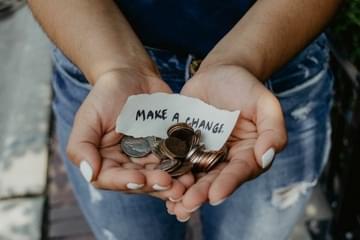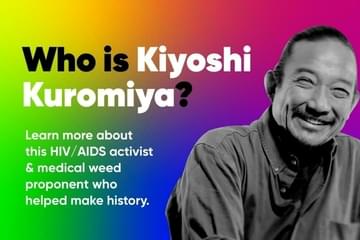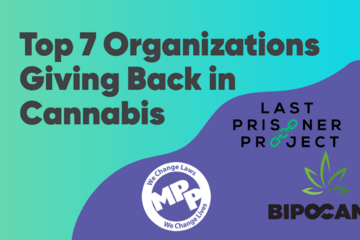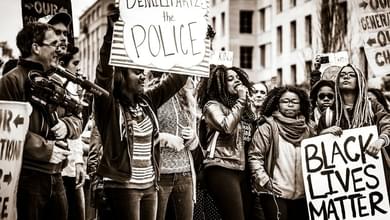
Cannabis & Racism: A History of Injustice
Published on 6/4/20
Updated May 25, 2022
We have been thinking a lot about the tragic and senseless murders of George Floyd, Breonna Taylor, Ahmaud Arbery, and countless other people of color over these last few years. We've struggled with what to say about us as a nation, our founding principles and obligations, and the systemic and catastrophic failures of larger systems like criminal justice and racial justice in these terrible times. So far, these struggles have led to more questions instead of answers.
How do you grapple with a system built on oppression? How do you console all those who have lost family members and friends to racist violence? We're still not quite sure we know the right words to say, but we do know that education is critical in these times.
With all of these questions in mind, we here at Where's Weed think it's a great idea to take a close, deep, analytical look at what decisions, policies, and environments have led to some of the issues we currently face. A key aspect is an approach that the U.S. has historically taken regarding cannabis, people of color, and criminal justice. So many people are uninformed about the systematic racism and the oppression black Americans face every day, and we want to do our part to change that. Racism is extremely prevalent when it comes to cannabis and has been for over a hundred years. This article will explore the racist origins of marijuana prohibition, the current state of racially-charged cannabis arrests, and movements paving the way to make a change.
The Racist History of Marijuana Prohibition

While many might believe that marijuana became illegal due to its psychoactive side effects, extensive recreational use, and even the myth that hemp was poised to put paper mills out of business, cannabis was unilaterally banned. There is much more to do with the story.
Let's step back to the late 1800s when cannabis was legal and positively regarded. During those days, hemp was widely used to make clothes and paper from its fiber, and cannabis was prescribed for medicinal purposes. However, when Mexican immigrants entered the U.S. after the revolution in the early 1900s, things started to change. The word "marijuana" is a Spanish word for cannabis, and the recreational use of it by the new immigrants soon spread across the country.
A key figure in the early stigmatization of marijuana was Harry Anslinger. Anslinger was head of the Federal Narcotics Bureau for more than 30 years, the precursor to the modern-day DEA. After alcohol prohibition ended in 1933, Anslinger fully turned his attention toward cannabis and essentially created the drug war. Films like "Reefer Madness," despite being full of racist tropes and pseudoscience from beginning to end, were shown to the public as documentaries showing the "dangers" of marijuana use. Strict drug laws and unnecessarily long prison sentences were crucial aspects of Anslinger's tenure. Laws would later be built in the 60s that the Nixon administration later admitted were intentionally racist and would lay the groundwork for the future of the DEA as we know it today.

Unfortunately, Anslinger's policies were deeply rooted in racism. He believed that the jazz music that was popular in the black community at the time was a result of cannabis use. He's quoted saying, "reefer makes darkies think they're as good as white men" and even stated that "there are 100,000 total marijuana smokers in the U.S., and most are Negroes, Hispanics, Filipinos, and entertainers...This marijuana causes white women to seek sexual relations with Negroes, entertainers, and others." Additionally, Anslinger pushed the myth that marijuana caused violent crimes and was a danger to white women and children in the US.
In 1937, Harry Anslinger helped pass the Marihuana Tax Act, making cannabis illegal. Throughout the rest of his career, Anslinger would continually go after minorities and often target the black community. He eventually helped pass the Boggs Act of 1951, which required mandatory sentencing for marijuana convictions and would legally combine marijuana with serious narcotics for the first time. Although he would eventually retire, Harry Anslinger's policies and ideals would remain.
When it comes to criminal justice and the impact that it's had on communities of color, few American figures are more culpable for perpetuating the lies and propaganda than Anslinger.
Current State of Racism and Cannabis

Despite the progress in the right direction regarding cannabis legality and decriminalization over the past two decades or so, the playing field is still far from even when it comes to jail time and drug-related offenses. Sadly, not much has changed, and racism runs rampant in cannabis-associated arrests.
Did you know, for example, that black people are 3.6 times more likely to be arrested for possession of marijuana than white people despite similar usage? In some states, that figure is as high as 9.6 times more likely for a person of color to be arrested. This is all from data reported in 2020, which hasn't changed much since similar data was collected seven years ago. The ACLU notes that in 31 states, racial disparities in marijuana-related arrests have worsened since 2010. Local and state police are given grants based on the number of stops, citations, and arrests that encourage unjust actions, often toward the black community.
Although decriminalization of cannabis and legalization has helped reduce the rates of arrests, there is still a consistent racial disparity in arrests made. In 2021, for example, a whopping 94 percent of marijuana-related arrests in New York City's five boroughs were of people of color. Another 2021 analysis found that black folks in Wisconsin's Ozaukee County and Manitowoc county were 34.9 and 29.9 times more likely to be arrested for cannabis-related offenses than white folks in the same county, all while white people use similar if not higher amounts of cannabis than blacks.
Where Do We Go From Here?
As you can tell, there is a deep-seated history of racism in cannabis laws and prosecution. With all of the current protests for change, we can't forget reform in the cannabis world. As more states legalize, there must be a push for resentencing of past sentences, which affects the black population disproportionately in jail.
Furthermore, there needs to be reform in police targeting marijuana. The incentive of funding for increased citations and arrests only leads to unnecessary actions taken by police. Grants should not be given toward punitive measures but rather to community programs and health services. These are just a few of the activities recommended by the ACLU, and we're hopeful that further legalization and reform can help erase the current racial disparity. We know that this will not entirely remove racism from our society but will be a small step in making a lasting change.
There's still a lot of reform, rebuilding, and restructuring that needs to happen before cannabis-related criminal and racial justice issues can be resolved here in America.
In an age where cannabis is legal in the vast majority of the U.S. and legalization is spreading worldwide, there's absolutely no reason why people should still be going to jail for cannabis-related reasons. However, the only way to fix it is to aggressively and loudly advocate for change. Call your local, state, and federal legislators, follow and consider donating to pro-legalization and decriminalization organizations, and consider supporting cannabis brands committed to working towards racial and criminal justice reforms.
Regardless of how exactly you do it, advocating for the oppressed and remaining on the right side of history for legal cannabis is never a bad look!



